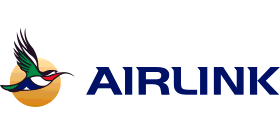 Airlink Connects Johannesburg to Nacala, Expanding Access to Mozambique’s Hidden Coast
Airlink Connects Johannesburg to Nacala, Expanding Access to Mozambique’s Hidden Coast
In a move poised to reshape regional air travel, Airlink, the trusted South African regional carrier, has announced a new direct service linking Johannesburg’s OR Tambo International Airport (JNB) with the emerging destination of Nacala Airport (MNC) in Mozambique. Set to commence on 2 February 2026, this addition marks a significant step for Airlink as it positions itself as a key player in facilitating both business and leisure connectivity across Southern Africa.
Strategically located on Mozambique’s northern coast, Nacala will become the seventh Mozambican city on Airlink’s expanding route map, joining existing services to Maputo, Beira, Pemba, Nampula, Tete, and Vilanculos. This network enhancement reflects the airline’s commitment to deepening intra-African links and unlocking access to lesser-known but promising travel markets for the region.
According to Airlink, the new Johannesburg–Nacala route will initially operate twice weekly, with flights scheduled on Mondays and Fridays. Utilizing the airline’s modern Embraer regional jet fleet, these flights are designed to maximize comfort and convenience for a diverse range of passengers. The outbound service, 4Z 236, departs Johannesburg at 10:30 and lands in Nacala at 13:10, while the return leg, 4Z 237, leaves Nacala at 13:45 and arrives back in Johannesburg at 16:35. This carefully timed schedule is set to enhance seamless transfers for travellers connecting to Airlink’s vast domestic network, as well as those heading onward on intercontinental flights through the airline’s global partnerships.
With the inclusion of Nacala, Airlink now offers a robust 64 weekly return flights between South Africa and Mozambique, reinforcing its role as a vital bridge between key business corridors and tourism hotspots in Southern Africa. For the African travel sector, this development signals new potential for both established and emerging destinations to capture a greater share of the growing market for regional and cross-border travel.
Airlink’s service is renowned for its passenger-centric approach, a factor that continues to resonate strongly with African travellers. On board, passengers will enjoy a complimentary light meal and refreshments, while the single-aisle configuration guarantees a window or aisle seat for everyone—no middle seats in sight. This detail, seemingly small, is a clear differentiator for business and leisure clients seeking comfort on regional routes.
Regarding baggage, Airlink demonstrates flexibility to suit varied traveller needs. Discounted Economy fares include a 20kg checked luggage allowance, while Full-Fare Economy offers an enhanced 30kg limit. For the increasingly mobile adventure segment, a 15kg free sports equipment allowance is also available, catering to those drawn by Mozambique’s coastline and natural attractions.
The expansion into Nacala is more than just a network update; it represents a strategic investment in the future of African travel and trade. Nacala, a scenic port city boasting pristine beaches and significant economic potential, is widely considered Mozambique’s next major tourism and commercial hub. By providing direct access, Airlink is not only opening new pathways for South African and regional travellers but also supporting the development of local industries, hospitality businesses, and cross-border partnerships.
For African travel professionals, the opportunity is twofold. First, there is the chance to introduce clients to a relatively undiscovered destination, allowing for the creation of unique packages and itineraries that blend culture, nature, and relaxation. Second, the improved frequency and reliability of flights empower agencies to confidently market Mozambique as a year-round option for both business and leisure, capitalizing on the momentum created by Airlink’s consistent growth in the region.
This latest route launch comes at a time when the African aviation sector is undergoing rapid evolution. As governments and private operators invest in airport infrastructure, and as demand for regional connectivity intensifies, airlines like Airlink are redefining what is possible for intra-African mobility. Enhanced access to northern Mozambique not only diversifies the choices available to travellers but also supports broader objectives such as increased regional trade, investment, and cultural exchange.
Looking ahead, the introduction of regular direct flights to Nacala will likely stimulate additional hotel and resort developments along Mozambique’s northern coast. Stakeholders in the hospitality sector should prepare for increased interest from both South African and international visitors, especially as the region gains recognition for its untouched beaches, marine biodiversity, and authentic cultural experiences. This, in turn, will create new partnerships, investment opportunities, and employment prospects for local communities.
The broader implications for Africa’s travel industry are substantial. As more airlines and destinations prioritize direct connectivity, travel professionals must adapt their strategies to leverage these changes. The new Johannesburg–Nacala service exemplifies how thoughtful network expansion can unlock value across the supply chain—from ground handlers and tour operators to hotels and event organizers. It is also a reminder that regional carriers, when aligned with the needs of the market, can be powerful engines of economic growth and regional integration.
Airlink’s decision to invest in Nacala is a testament to the airline’s confidence in the future of both Mozambique and the continent’s aviation landscape. As Africa continues to rise in global tourism rankings, seamless air access will be the key enabler for sustainable growth, diversification, and competitiveness. For those shaping the future of African travel, the message is clear: the next wave of opportunity lies in connecting new frontiers, and Nacala is set to become a name to watch in the years ahead.
